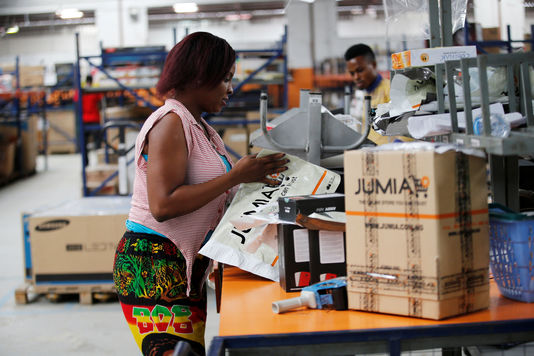With a focus on profitability for the time being, the pan-African online sales platform is aligning a new negative exercise.
Like its big brother and American model Amazon, long deficit, the pan-African company e-commerce Jumia multiplies the years in the red. Posted in a statement Friday, from the Lagos continental headquarters, the results of fiscal 2017, are no exception. Sales of the online sales platform may well have increased by 11% in 2017 (to 93.8 million euros), its losses have not diminished, the gross operating deficit reaching 120 million euros, compared to 91.3 million euros a year earlier.
A situation that does not seem to affect the optimism of two founding CEOs of the company, Sacha Poignonnec and Jeremy Hodara. “We have made great progress in 2017 with significant growth in our business. This growth demonstrates the vitality of our activities and the growing adoption of e-commerce by African consumers, “said the two French executives, quoted in the statement.
The young company, which has more than 5 million products on sale at its sites, claims, moreover, an increase of more than 40% in the volume of products traded on its sites, for an overall value of over 500 million euros. in 2017. “A rapid evolution of turnover (multiplied by 10 since 2013) and which reflects a strategy of rapid market share gains at the expense of profitability,” says Lionel Nsabimana, an analyst at CDH Capital scholarship, in Kigali. It remains to be seen whether the main shareholders of the company (MTN, Goldman Sachs, Orange, Axa) – not listed on the stock exchange – will have the patience to wait for a hypothetical return on investment.
Founded in 2012, Jumia first benefited from the support of Rocket Internet, the German incubator of billionaire brothers Samwer, known for launching start-ups replicating US successes. The e-commerce business is now present in 14 countries of the continent, Nigeria being its largest market.



